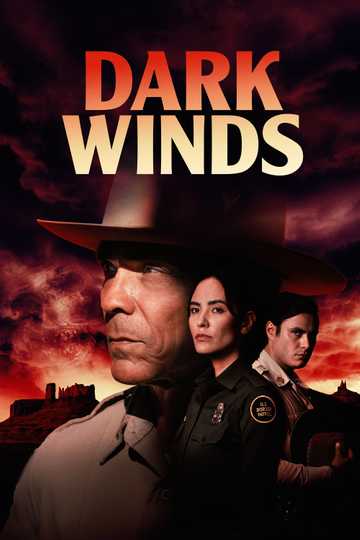2016 Episodes
1. World War 1 - 1915
Here’s a further condensed version: *World War One - 1915* highlights German Zeppelin air raids on Britain, and the Royal Navy's victory at the Battle of Dogger Bank. Germany began unrestricted submarine warfare, while on the Eastern Front, Germany defeated Russia at Masurian Lakes, but Russia captured 100,000 Austro-Hungarians at Przemyśl. Allied ships faced heavy losses in the Dardanelles, and troops, including ANZACs, were pinned at Gallipoli. On the Western Front, British offensives failed, and Germany used chemical weapons at Ypres. The Armenian Genocide began in April. The sinking of *Lusitania* outraged the US, prompting Germany to suspend attacks on passenger ships. Italy joined the war, attacking Austria-Hungary, and Allied offensives in France resulted in heavy losses. In the Balkans, Serbia was overrun by the Central Powers, with the Serbian army suffering catastrophic losses during its retreat.
2. World War 1 - 1916
World War One: 1916' covers the great battles of Verdun and the Somme on the Western Front, as well as Russia's Brusilov Offensive on the Eastern Front. In the Middle East, British forces surrender at Kut, while the Arab Revolt begins in the Hejaz. But unbeknownst to Arab leaders, the British and French have secretly agreed to carve up the Middle East after the war in the secret Sykes-Picot Agreement. The war's only great naval battle is fought at Jutland, while the Italians face crisis after the surprise Austro-Hungarian attack at Asiago. In the Balkans, Romania joins the war on the Allied side, but is soon overrun by the Central Powers. CORRECTION: 13.10 - Karl was the great-nephew, not the son, of Emperor Franz Josef I.
3. World War 1 - 1917
Here’s a revised version under 1000 characters: In *1917*, Germany reintroduces unrestricted submarine warfare, hoping to defeat Britain by cutting off food supplies. This leads to an American declaration of war. In Russia, revolution forces Tsar Nicholas II to abdicate, and the Provisional Government vows to continue the war. However, the Bolshevik Revolution leads to an armistice by year's end. On the Western Front, major battles include Arras (with Canada’s capture of Vimy Ridge), the Nivelle Offensive, Messines, and Third Ypres (Passchendaele). In November, Britain launches the first mass tank attack at Cambrai. In Italy, Germany's reinforcements lead to victory at Caporetto. In the Middle East, Britain wins at Kut, Baghdad, and Gaza, allowing them to enter Jerusalem. The Arab Revolt captures Aqaba, aided by TE Lawrence, but the Balfour Declaration complicates British promises to the Arabs about independence.
4. World War 1 - 1918
Here’s a further condensed version under 1000 characters: In 1918, Woodrow Wilson proposes his 'Fourteen Points' for peace. Russia exits the war with the Treaty of Brest-Litovsk, freeing German troops for Ludendorff's Spring Offensive. Despite early success, it's halted at Amiens by British and Australian forces. In April, the Red Baron is killed. US troops arrive, winning at Cantigny and Belleau Wood. The Allies' Hundred Days Offensive breaks the Hindenburg Line, defeating Germany. In the Balkans, victory at Dobro Pole forces Bulgaria to surrender. In the Middle East, British forces win at Megiddo, occupying Damascus and Aleppo. The Ottoman Empire and Austria-Hungary soon sign armistices. Revolution in Germany leads to the Kaiser’s abdication, and an armistice on November 11. The 1919 Treaty of Versailles imposes harsh penalties on Germany, creating resentment later exploited by Adolf Hitler.
5. Battle of the Somme 1916
This is the story of the first day of the Somme Offensive, 1 July 1916 - the single bloodiest day in British military history. 57,000 British soldiers became casualties, most within a few hours of the initial attack. The offensive was part of a doomed attempt to break the deadlock of trench warfare. But behind the myths lies the story of an elaborately-planned battle, fought against a determined and experienced German enemy, and a struggle that was seen at the time as both unavoidable and necessary. The Battle of the Somme, of which 1st July was just the first, disastrous day, raged for another four months, and was vital not only in diverting German forces away from their assault on the French at Verdun, but in teaching Britain's 'citizen army' how to fight a modern war against the German army.
6. History of Russia Part 2: Birth of a European Power
Here’s a condensed version under 1000 characters: Russia, emerging from the Time of Troubles, is liberated from Polish forces by Prince Pozharsky and Kuzma Minin. The Zemsky Sobor elects 16-year-old Mikhail Romanov as Tsar, starting the Romanov dynasty. Under the Romanovs, all peasants become serfs, and Patriarch Nikon's reforms split the Russian Orthodox Church. The Thirteen Years War (1654–67) brings Smolensk and Kiev under Russian control, while Stenka Razin leads a rebellion. In 1689, Peter the Great takes power, modernizes Russia, builds a navy, and reforms government, industry, and education. He wins major victories against the Ottomans and Sweden, including the famous Battle of Poltava. Later, Empress Anna sponsors Bering’s exploration of Alaska, and Empress Elizabeth leads Russia to victory in the Seven Years War. Catherine the Great seizes power after overthrowing her husband Peter III, expanding Russia and cementing her legacy.
7. The Most Feared Pirate in History: Blackbeard - The True Story
Edward Thatch, known as Blackbeard, likely began his pirate career around 1717 under Captain Ben Hornigold in Nassau. He later commandeered Stede Bonnet's sloop, renaming it "Revenge." Blackbeard terrorized the American eastern seaboard and the Caribbean, capturing a French slave ship he renamed "Queen Anne's Revenge," which he used to attack from Guadeloupe to the Gulf of Mexico. In 1718, he blockaded Charleston, South Carolina, for ransom. After his flagship ran aground, possibly intentionally, he accepted a pardon in Bath, North Carolina, but soon returned to piracy. He was killed in a battle led by Lieutenant Maynard at Ocracoke Island, organized by Virginia's Governor Spotswood.
8. History of Russia Part 3: Age of Glory
Catherine the Great's reign marked Russia's cultural and territorial expansion, including annexing Crimea and partitioning Poland. She settled Novorossiya and welcomed European migrants, but distanced herself from liberalism after the French Revolution. Her son Paul's rule, though marked by military successes against France, ended in his assassination. Alexander I introduced reforms and faced Napoleon's invasion in 1812, which ended disastrously for the French. Alexander also expanded into Finland, the Caucasus, and the Balkans, and became King of Poland.
9. American Presidents: A Complete Timeline - Washington to Cleveland (1/2)
Part 1 of our animated timeline of America's first 44 Presidents, from George Washington and the Founding Fathers to the trauma of Civil War and Reconstruction.
10. American Presidents: A Complete Timeline - Harrison to Obama (2/2)
Part 2 of our timeline of America's first 44 Presidents, from Benjamin Harrison to Barack Obama.
11. American Presidents: Complete Timeline - 44 Presidents in 3 Minutes
All 44 Presidents in 150 seconds! A timeline of all the presidents in chronological order. If you want more detail check out Epic History TV's 2-part guide to America's Presidents:
12. History of Russia Part 4: 'What Is to Be Done?'
Nicholas I took the Russian throne in 1825, surviving the Decembrist Revolt, and embraced "Orthodoxy, Autocracy, and Nationality." His reign saw victories over Persia and the Ottoman Empire, and the suppression of the Polish November Uprising. Russia's cultural landscape was marked by Pushkin's death in 1837, followed by the opening of the Moscow-St. Petersburg railway in 1851. Russia's conflict with Britain and France in the Crimean War led to a harsh peace treaty. Alexander II, succeeding in 1855, abolished serfdom in 1861, earning him "The Liberator" title, though economic struggles persisted. Russia expanded in Central Asia, clashing with Britain in "The Great Game." In 1867, Russia sold Alaska to the U.S. for $7.2 million. After defeating the Ottomans in 1877-78, Alexander II was assassinated by "The People's Will" in 1881, frustrated by slow reforms.
13. History of Russia Part 5: The Last Romanov
Following Alexander II's assassination, Alexander III's reign tightened autocratic control, with the Okhrana policing revolutionaries and anti-Semitic pogroms occurring. Economic modernization under Sergei Witte included the Trans-Siberian railway. Nicholas II's rule saw defeat in the Russo-Japanese War, leading to the 1905 Revolution, which forced concessions and a constitution. Prime Minister Stolypin's land reforms aimed to aid peasants but he was assassinated in 1911. Russia's involvement in WWI led to massive losses and domestic unrest, culminating in the 1917 February Revolution, where Nicholas II abdicated, setting the stage for the Bolshevik takeover amid ongoing chaos.
14. History of Russia - Rurik to Revolution
From Prince Rurik to the Russian Revolution, this is a compilation of the first 5 episodes of Epic History TV's History of Russia.






























